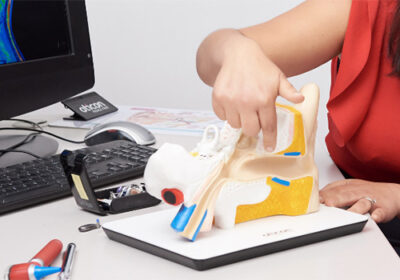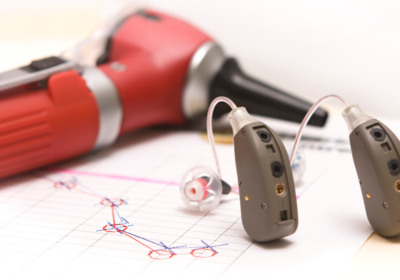
TV comedies often get a lot of cheap laughs when a character is trying to get a message across to someone who can’t hear properly so keeps misunderstanding crucial information.
But it’s not funny in real life. When that situation keeps repeating itself in many daily interactions with a loved one, even the most loving and patient person is bound to get frustrated.
In 2017, researchers at the University of Nottingham reviewed 70 previous studies on the impact of hearing loss on individuals and those closest to them. They found that an individual’s hearing loss has a significant impact on their close family and friends who often report:
- Stress due to their loved one’s hearing loss
- Relationship strains
- A sense of guilt over their response to their loved one’s hearing loss
- Feeling drained by the effort it takes to communicate.
Communication may never be quite as easy as it once was but there are small changes you can make to improve your chances of being understood.
6 tips for easier communication with someone who has hearing loss
Adaptation is the key to successful communication now. The tips below will help you improve communication with someone who has hearing loss.
In fact, these are good tips for communicating with everybody – many of our habits like calling to someone from a different room actually prioritise convenience over courtesy.
1. Make sure they can see you
A person with hearing loss needs to use their eyes to back up their ears. Your facial expressions, mouth movements and body language provide valuable information that helps them understand what you’re saying.
First, get their attention by saying their name or touching their shoulder. Then position yourself in front of them face-to-face, on the same level and in good lighting.
Don’t call from another room anymore as it denies your loved one the opportunity to use all these clues to understanding.
2. Reduce background noise
Many people with hearing loss find it hard to distinguish between sounds, especially when there’s background noise.
So, don’t try to talk while the kettle’s boiling, the TV is on or music is playing. Turn off as many background noises as you can before you start talking.
3. Speak slowly, clearly and normally
There’s no need to shout or exaggerate your mouth movements. In fact, that can make it even harder to read your lips. Just talk normally albeit slowly and deliberately clearly.
4. Use their ‘good ear’
Many people hear better in one ear than the other. If that’s the case, then remember which is the good ear and make sure you’re on that side when you’re speaking.
5. Factor in their tiredness
Living with hearing loss can be very draining. Your loved one is working overtime to decode every conversation and it’s exhausting.
So, factor that in. If you know you need to have an important conversation, plan it for earlier in the day when they’re feeling fresher (and you’ve got daylight to illuminate your face).
6. Write it down
Would there be awkward consequences if your loved one misunderstands the details of a particular conversation? If so, write it down. That simple act saves a great deal of frustration over missed appointments and uncompleted errands.
There are many different ways of doing this. Hopefully, the two of you can agree on a system together like a particular notebook, an SMS for important reminders or notes stuck on the fridge.
How can Active Audiology help?
At Active Audiology, we understand that hearing loss affects not just the individual but also their family. That’s why we strongly encourage family members to attend appointments. Indeed, your experience often provides valuable information that aids our diagnosis as you may be more aware than your loved one of the times when they don’t hear properly.
A hearing test is the first step towards identifying and addressing hearing loss. Book a test today.
Disclaimer
All information is general in nature.



